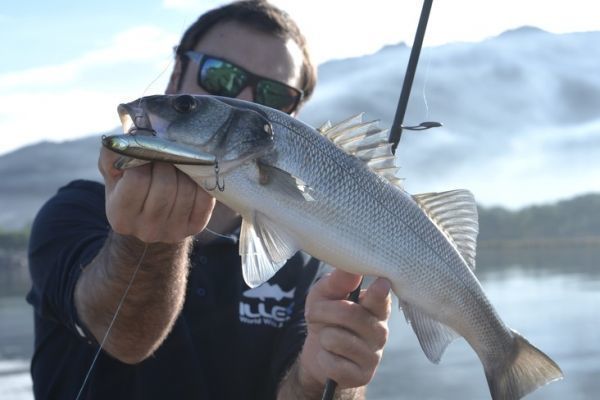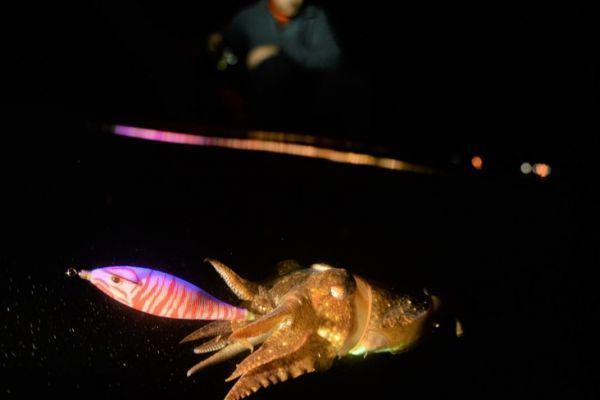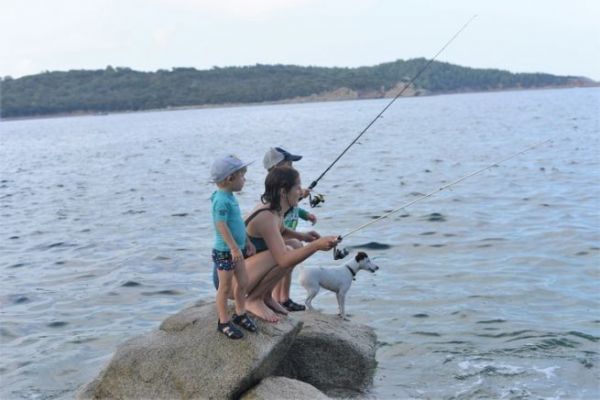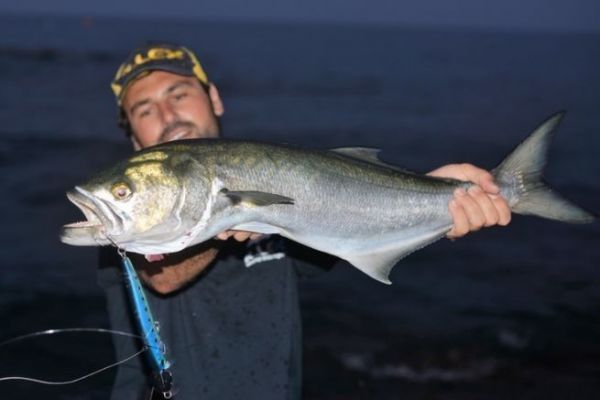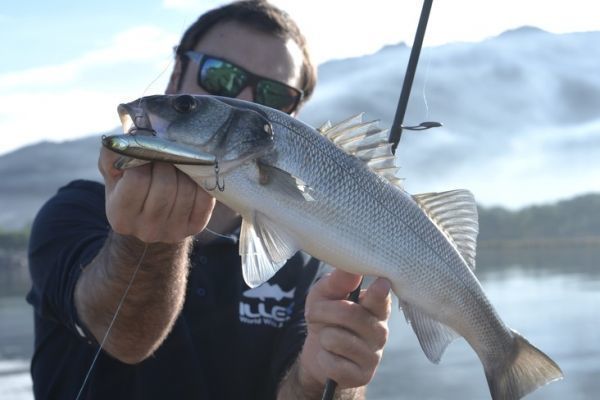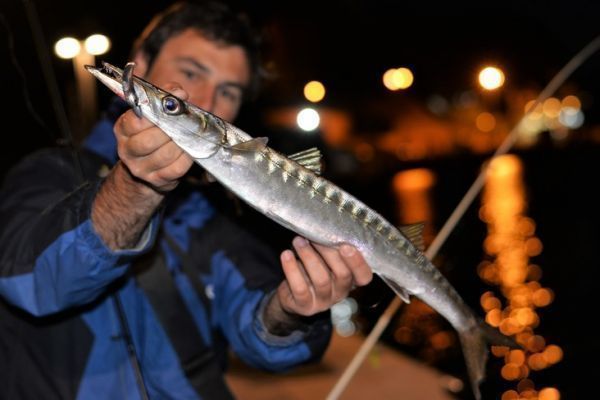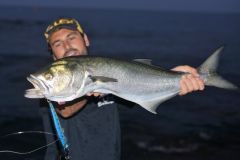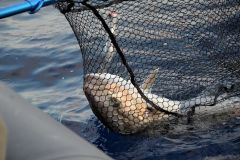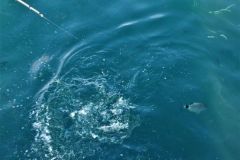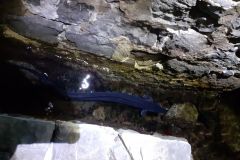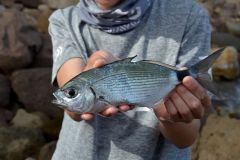Wolves are relatively well represented on the Corsican coast. There's plenty for this predator to do between ponds and lagoons, river mouths, beaches, rocky coasts, harbors... It's bound to find what it's looking for.
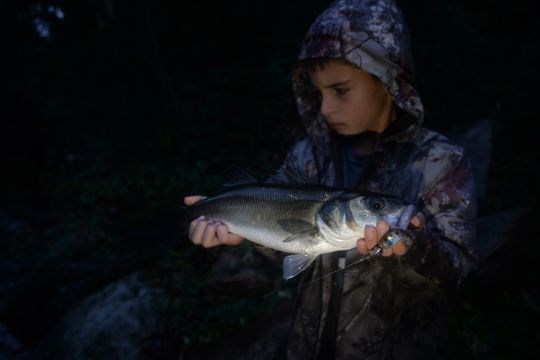
The angler has to be cunning to outwit the Dicentrachus labrax, which is very wary on the Isle of Beauty. I invite all those who regularly catch one to release as much as possible of this beautiful, relatively slow-growing Mediterranean predator. To prevent it from being completely supplanted by "new" predators such as the barracuda or the tassergal...
Wolffish fishing in estuaries
Corsica has many small rivers and estuaries. These river mouths are ideal for wolf stalking, as wolves are less wary of hunting there. They find an abundance of small mullet, as well as antherina, eels, crabs and cuttlefish.
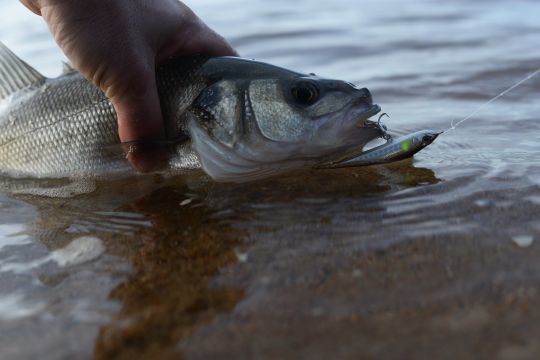
The best time to fish these areas is in autumn and winter, when the mouths "spit" and the waters are prickly.
Early in the morning or late in the evening, it's possible to fish with surface lures or lipless minnows.
Further up the rivers, sometimes completely in freshwater, Texan-mounted shad and finesse soft lures are almost imperative. The rivers are often very cluttered and littered with branches and other debris carried by the waters.
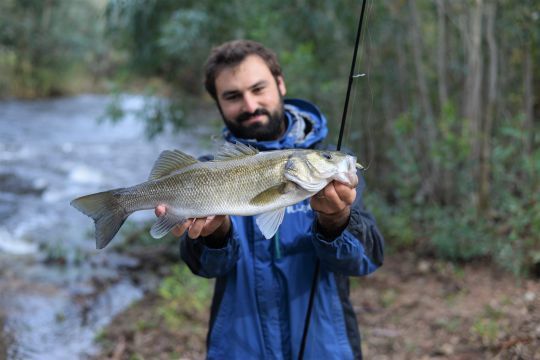
Fishing for wolffish in ports
In addition to estuaries and lagoons, wolfish can also be caught in harbours. There are sometimes very large wolffish visible in Corsican ports, but catches remain anecdotal with lures.
If you want to devote yourself to this, I advise you to fish at night in these often well-lit areas, using soft lures on light lead heads. As fish are wary, you need to present the lure in the most natural way possible, fishing with a fine line.
From the rocky shores
The last spots where it's possible to specifically target wolffish in Corsica are the rocky coasts. These are best explored when there's a swell and the water around the edge is "white", charged with bubbles created by waves and eddies hitting the rock.
Wolves frequently hunt here, and lipless minnows and swimming fish are particularly effective.
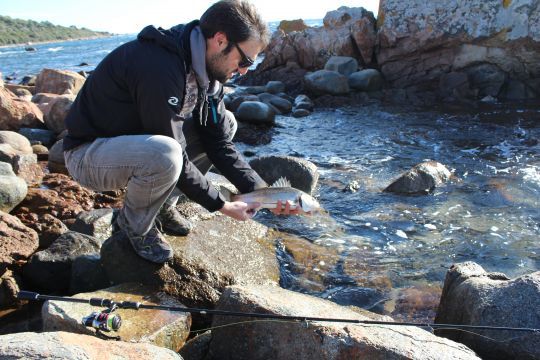
When the waters are rough and turbulent, this greatly reduces the wolves' distrust and increases the chances of capture.
As you can see, the best time to go wolf stalking in Corsica is from autumn to late December. After that, most of the fish move away from the coast, probably to spawn, and don't return until early spring.

 /
/ 